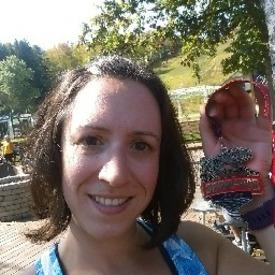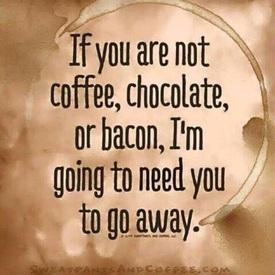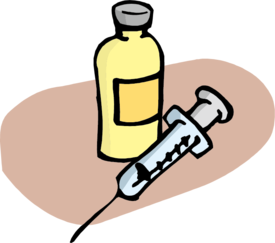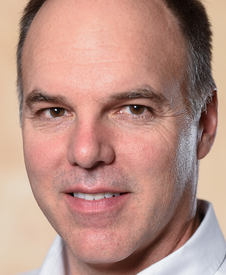Starting low carb

EternalSnow627_
Posts: 85 Member
I've seen a lot of people using butter to fry with. Like wouldn't using butter instead of cooking oil or pam make cholesterol go up higher?
1
Replies
-
No2
-
The idea that high cholesterol is a marker for heart disease has been proven incorrect. It's actually quite widely accepted at this point.
You'll want to study up on why having high cholesterol isn't even much to be concerned about. There are links in the open threads in the launch pad. High total cholesterol in itself doesn't say anything about heart disease risk.
Eating more natural fats could make total cholesterol higher but that's more likely a good thing since it raises HDL and possibly large LDL.
http://eatingacademy.com/nutrition/how-did-we-come-to-believe-saturated-fat-and-cholesterol-are-bad-for-us3 -
EternalSnow86 wrote: »I've seen a lot of people using butter to fry with. Like wouldn't using butter instead of cooking oil or pam make cholesterol go up higher?
Mmmmm butter.
The best part of butter is that it's made by cows, not chemists.
Tho I do use veg oil occasionally (above my daughter's loud objections) just cause olive oil is stinky when cooked with and other oils are so expensive. I never worry about foods that have existed for thousands of years.
My Atkins bars do worry me a bit, but at certain times of the month I just don't care. At least I'm not eating a giant fried Oreo sundae.
As far as butter and heart disease, there is no evidence saturated fat causes heart issues. There is lots of evidence body fat causes heart issues. So the real question is is it the butter making you fat or the bread and sugar that makes us fat?
I think it's the carbs and resultant high blood sugars. Diabetes and insulin resistance are at very high levels in our population.
I don't blame butter. I do blame sugar, soda, processed white flour, bread, cereals, pasta and white rice. And even our modern day year round access to fruits and fruit juices!
7 -
On a side note, butter is one of the few foods the Bible tells us to eat! Which I found interesting. Another is honey, which I might do when I get to goal weight in moderation. I might even eat whole grain breads. I'll never eat my old SAD diet tho.1
-
@EternalSnow86 - Two things.
First, I have learned I prefer ghee to butter. It is more expensive, but you need less of it, it tastes better, and the smoke point is WAY higher so you don't have to worry about it scorching like you do with butter.
Second, see this article from the British Medical Journal showing how there was actually no scientific basis for the restriction on fat/saturated fat even when the first recommendations were made and since then no scientific evidence.
http://bjsm.bmj.com/content/51/10/769
Having followed this WOE to control my BG, I wanted to make sure I was not jumping out of the frying pan and into the fire, so i have done extensive research in this area. I have put quite a bit of it in other threads, but I think this one article is a pretty good summary of the science.3 -


 or
or 
4 -
Making your own ghee is very cost effective, easy and I do it a lot....4
-
To go somewhat against the majority here, some people do seem to have their cholesterol increase from increased sat fat (not opining on whether that's bad or not, I'd probably ask questions of my doctor). I think a majority do not find such a connection between cholesterol and diet (or sat fat specifically). I've never found that it made a difference, but my cholesterol has never been high. (Many people who do have high cholesterol find that just losing weight causes it to go down.)
Industrial seed oils have more evidence of negative health effects than butter, I believe, and I do avoid them. I use butter, coconut oil, olive oil, and avocado oil all, as well as bacon fat, but vary based on use or taste (I think they are all tasty, but compliment different foods differently). Result is I don't use a ton of butter, but see no reason not to use it if I think it would taste better (ghee in Indian dishes, I like to cook fish in butter quite often).2 -
Time magazine just did a story on it (lack of any studies linking sat. fat to disease) last year. It's hard to say it's dietary fat to blame or not when the common belief that dietary fat makes you fat is being challenged right and left.
All the new science I've seen points to carbs (which your body stores as fat) being much more dangerous to health than butter.
It's still hard to convince ppl that fat is not the evil (and cereals are not the heroes) as we've been taught for decades. We are not the majority, that's for sure. My doctor still warns me at every visit how dangerous a low carb diet is. She would prolly flip if I ever discussed fats with her.
3 -
My mother's doctor was warning her against high cholesterol... I couldn't be bothered to put him right... I was losing the will to live at that point....1
-
AlexandraCarlyle wrote: »Making your own ghee is very cost effective, easy and I do it a lot....
Can I ask how you make it?
1 -
Yes.4
-

Take two 250g blocks of unsalted butter, cut into chunks and melt over a med/low flame.
Once melted, the butter will start to fizzle and bring up foam to the surface, which is best skimmed off, if possible... after a while of heating, you will see the butter clear, and the sediment staying on the bottom.
When you can see that the sediment is beginning to brown, take it off the heat, and either through a double-thickness muslin cloth, or through a paper coffee filter, pour the melted butter into a clean, dry jar.
Ghee residue is a rich source of protein and fat apart from containing considerable amounts of minerals and can be used as human dietary supplement....
I used to use the sediment/residue, to make brownies, but this was before I realised carbs were a no-no....It needs sugar, and cashews, and milk.... you see my problem!
This was the recipe I used to use....
4 -
Ghee is the same thing as clarified butter; to make it, heat your butter in a small saucepan over very low heat until completely melted and all of the solids have settled to the bottom - those are the milk solids. Carefully pour the butter through cheesecloth into a jar, or container of your choice. Once the milk solids are removed it's safe to keep at room temperature for quite a while.2
-
I want to try this recipe for ghee. Uses the crockpot. http://holisticallyengineered.com/2013/11/five-ingredient-slow-cooker-ghee.html2
-
pitbullmamaliz wrote: »I want to try this recipe for ghee. Uses the crockpot. http://holisticallyengineered.com/2013/11/five-ingredient-slow-cooker-ghee.html
Doesn't get much easier than this.1 -
@lemurcat12 ...in case you aren't familiar with this (and you might have already seen it) this short 3-4 minute video explains, at least with regard to eating LCHF, why that happens:
 https://www.youtube.com/watch?v=MNfjkTyBUdQ 2
https://www.youtube.com/watch?v=MNfjkTyBUdQ 2 -
cstehansen wrote: »pitbullmamaliz wrote: »I want to try this recipe for ghee. Uses the crockpot. http://holisticallyengineered.com/2013/11/five-ingredient-slow-cooker-ghee.html
Doesn't get much easier than this.
Right? I just need to buy a cheesecloth.0 -
@lemurcat12 ...in case you aren't familiar with this (and you might have already seen it) this short 3-4 minute video explains, at least with regard to eating LCHF, why that happens:
I'm not talking LCHF specifically or getting into the argument over whether it's bad or not, but I know cholesterol responds to diet for some people. My dad improved his by changing his diet (at least according to his doctor, and I have no reason to doubt that). My understanding is that not everyone's cholesterol is responsive to diet/sat fat, and I so far don't think mine is, as it's always been good, whether I'm eating higher sat fat or not. But I don't rule out the possibility that some people do have reasons to avoid higher sat fat.1 -
EternalSnow86 wrote: »I've seen a lot of people using butter to fry with. Like wouldn't using butter instead of cooking oil or pam make cholesterol go up higher?
I suggest you study LCHF and Keto Diets, there are a ton of resources out there. Also, start here to get many of your questions answered: http://community.myfitnesspal.com/en/discussion/10103966/start-here-the-lcd-launch-pad#latest
Put it simply, your body makes it's own cholesterol in a massive amount compared to what we might ingest. If we take in more, it makes less.0 -
lemurcat12 wrote: »@lemurcat12 ...in case you aren't familiar with this (and you might have already seen it) this short 3-4 minute video explains, at least with regard to eating LCHF, why that happens:
I'm not talking LCHF specifically or getting into the argument over whether it's bad or not, but I know cholesterol responds to diet for some people. My dad improved his by changing his diet (at least according to his doctor, and I have no reason to doubt that). My understanding is that not everyone's cholesterol is responsive to diet/sat fat, and I so far don't think mine is, as it's always been good, whether I'm eating higher sat fat or not. But I don't rule out the possibility that some people do have reasons to avoid higher sat fat.
You are correct that the effect is individualized. If you look at any scientific study in detail, the percentage with the reported response is almost never 100%. You can find exceptions to anything. My grandfather for instance started smoking at 13 and quit when he was 78. He lived to be 85 without any lung cancer. He was actually in great physical health until the end. It was the Alzheimer's that got him.
However, the majority of people do not have a significant variation in cholesterol from diet. The key word being significant. This is because between 75% and 90% of the cholesterol circulating in your blood is what your body made and not what it consumed. If your body is working correctly, it will work toward homeostasis and produce less if you consume more. This does not happen for some people.
Also, if you are a higher level fat adapted athlete, your cholesterol will typically be higher especially soon after intense exercise because your body needs more fuel. This is similar to a blood sugar spike that is common after exercise in many sugar burners and even some who are fat adapted, because your body has been pumping out glucose from glycogen stores and your liver is pumping it out to meet demand and your body is not smart enough to know exactly when you are going to stop and therefore will continue to produce for a short time afterwards.
However, if you look at the actual data regarding cholesterol and CHD, the evidence is just not there for a causal relationship. This is a huge area of interest for me, so I have done and continue to do a lot of reading here. I won't claim to be the ultimate expert, but I will say every study that supposedly "proves" this causal relationship doesn't seem to pan out once you look at the data that is actually in the study.4
This discussion has been closed.











